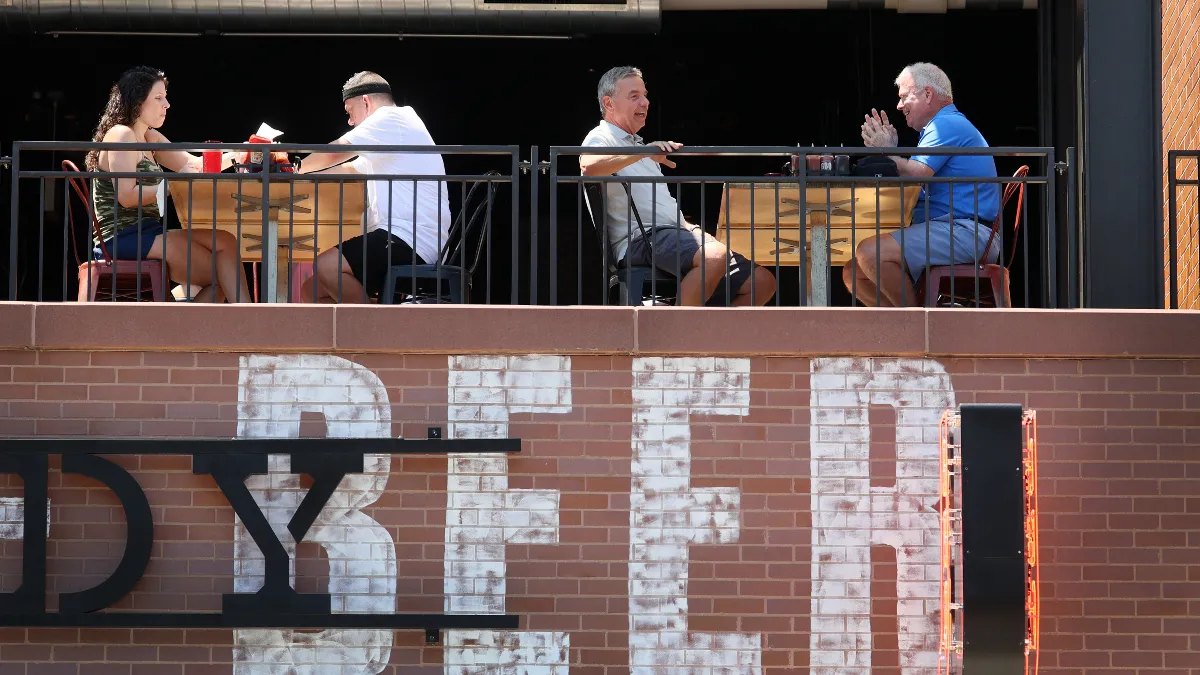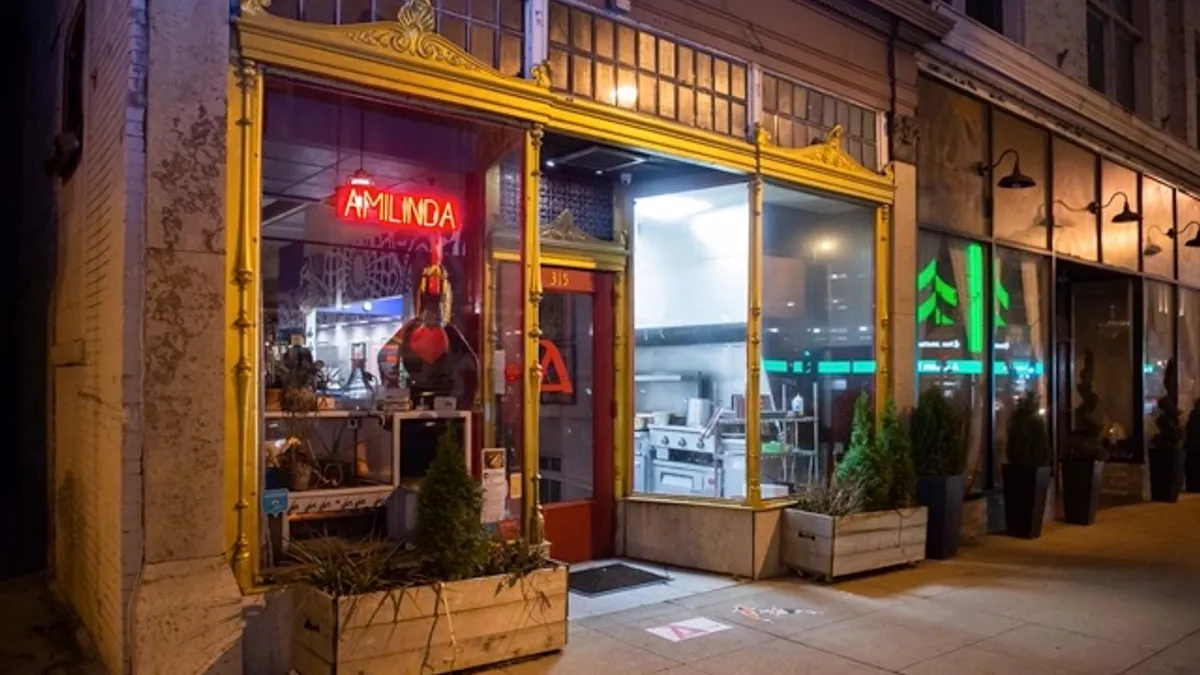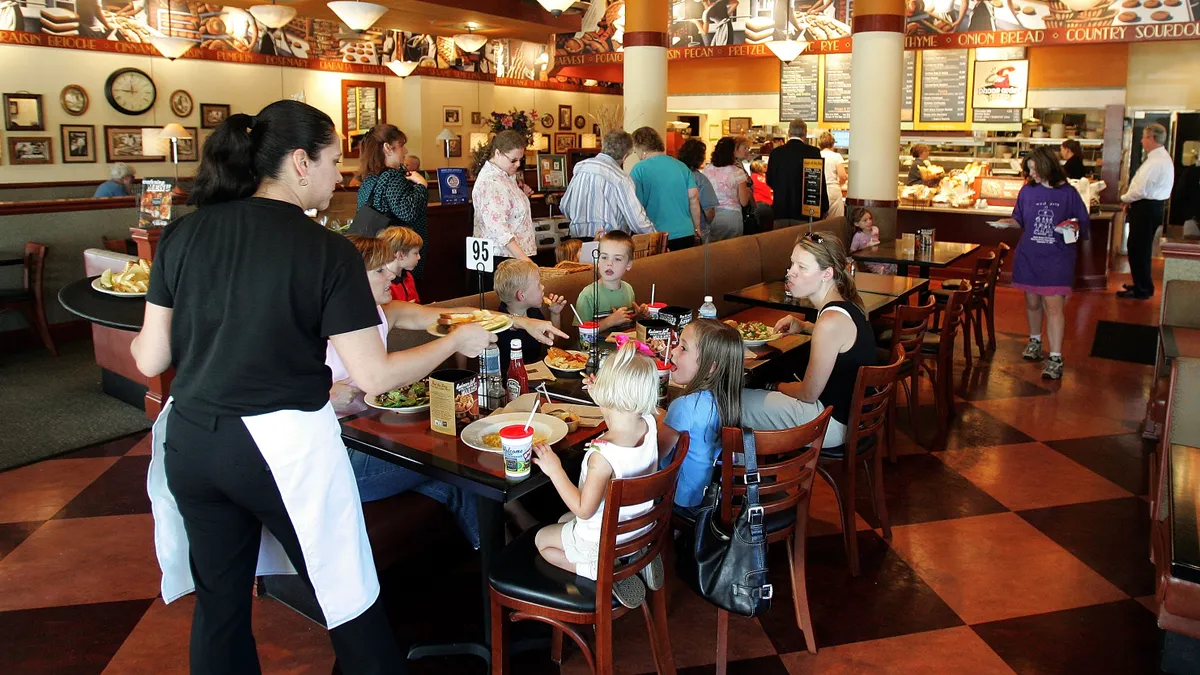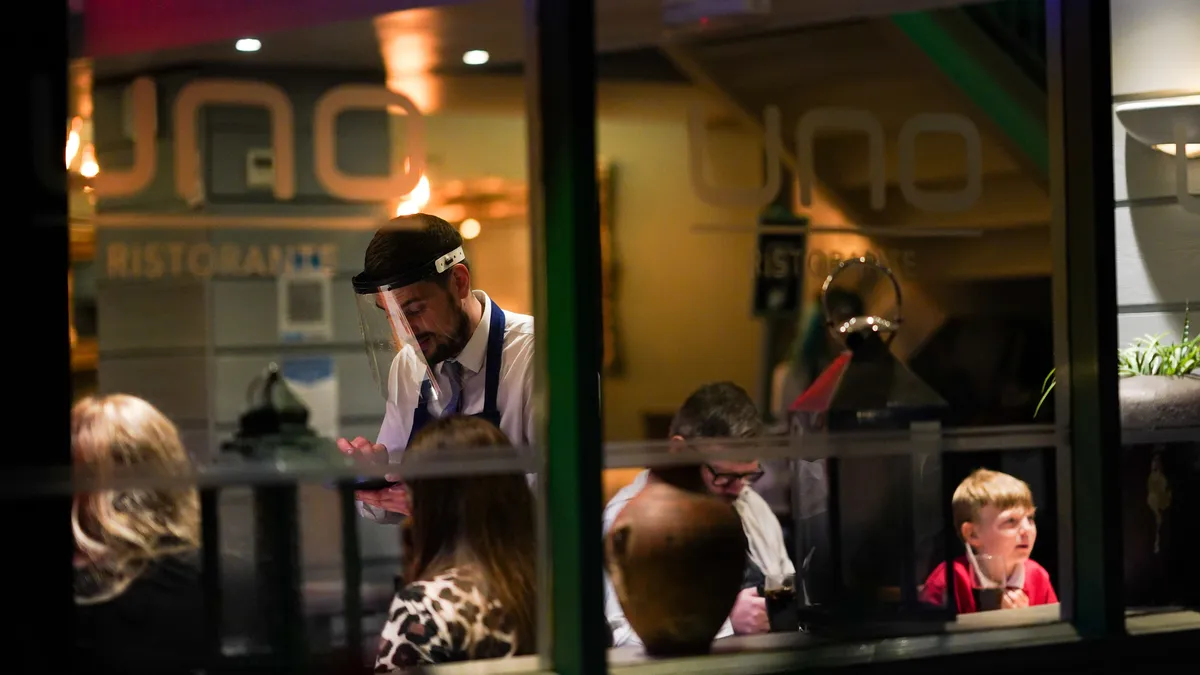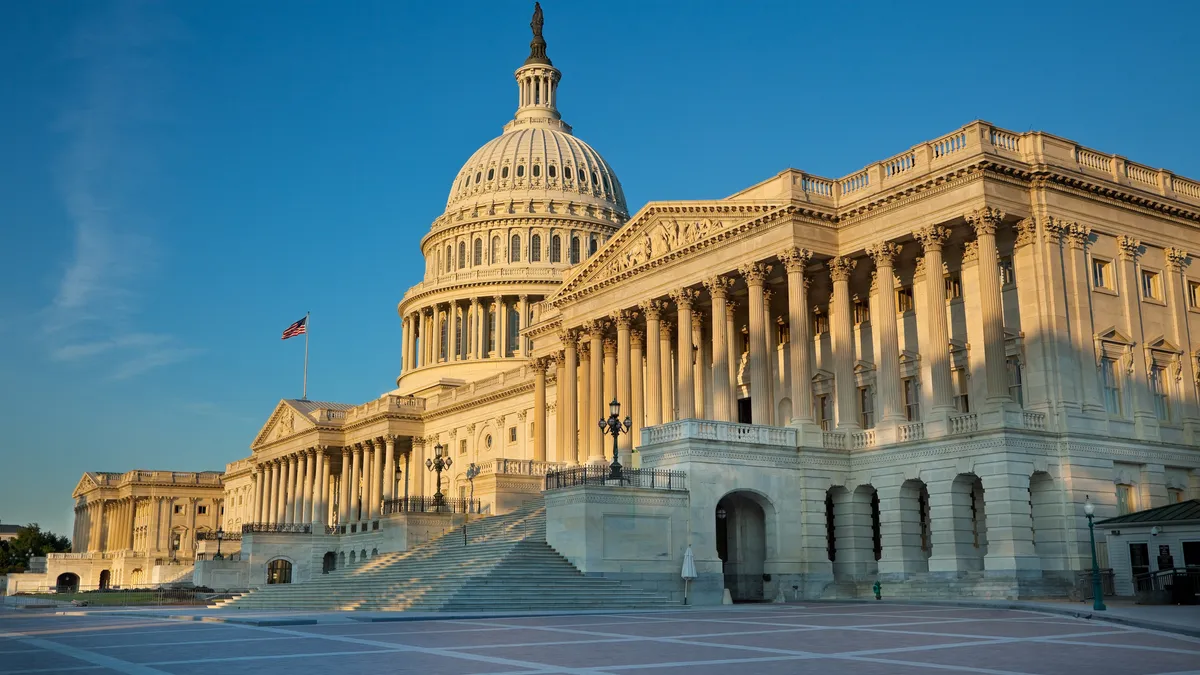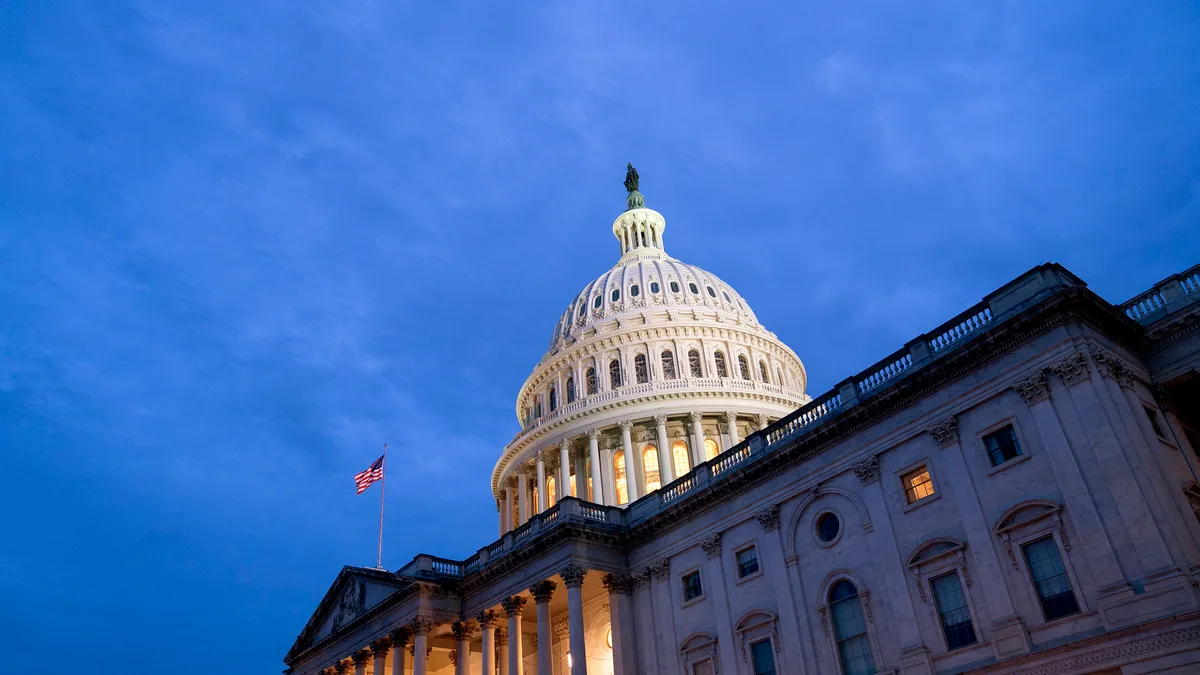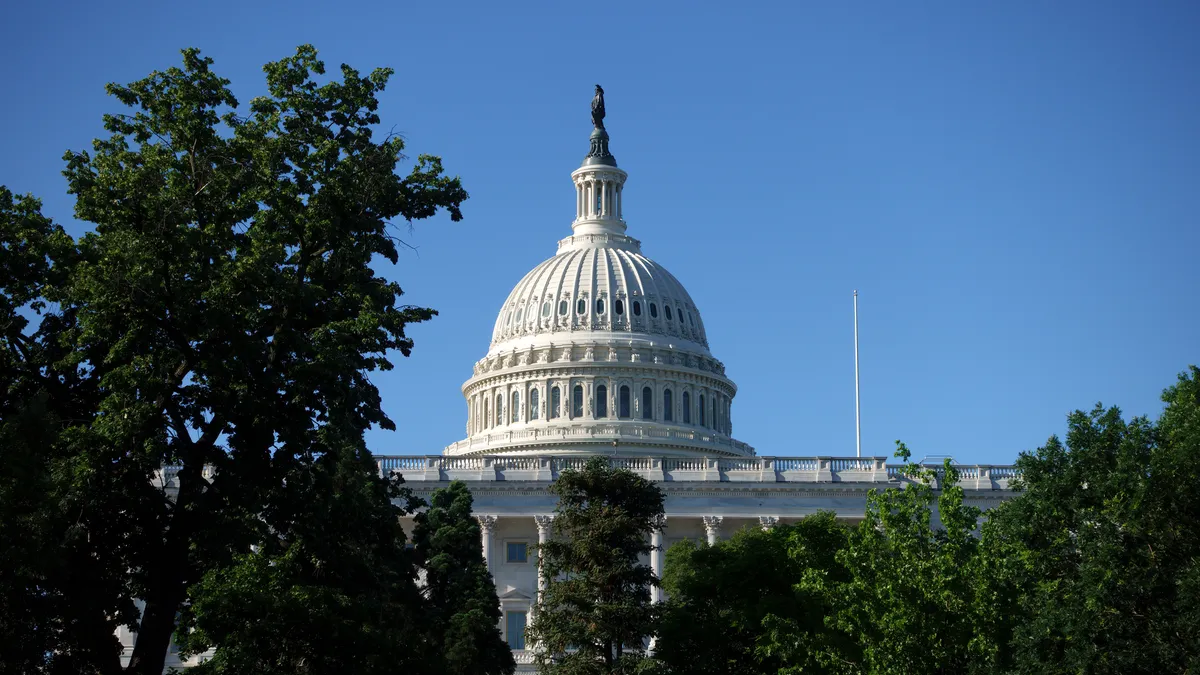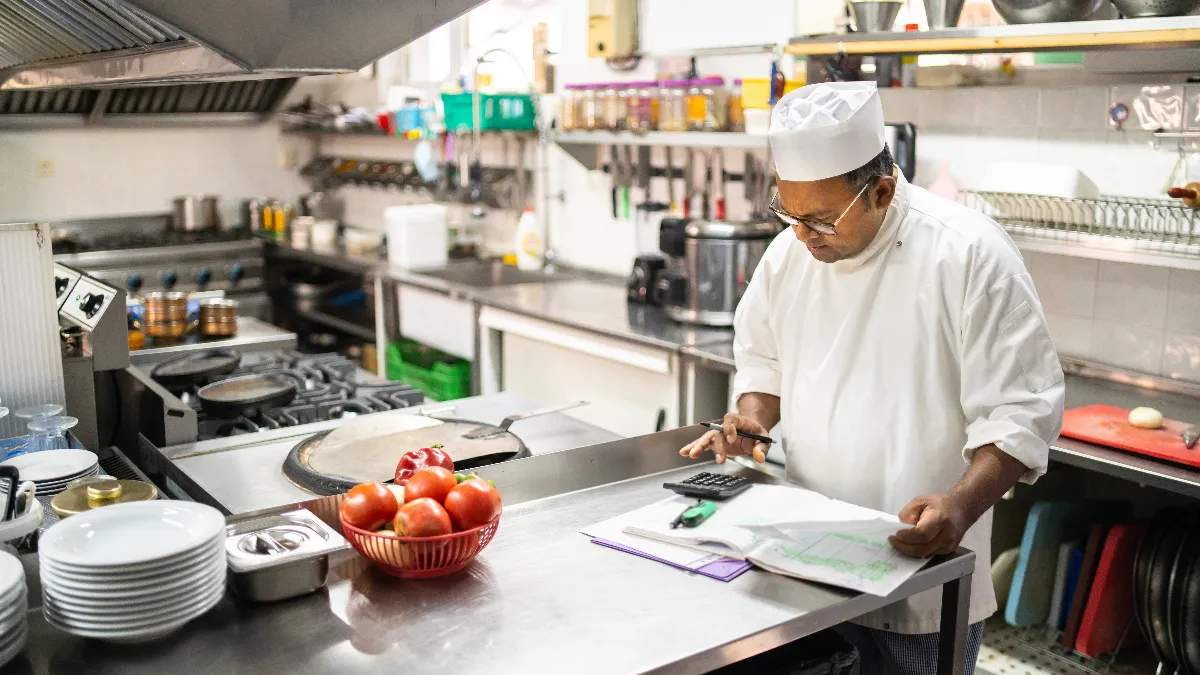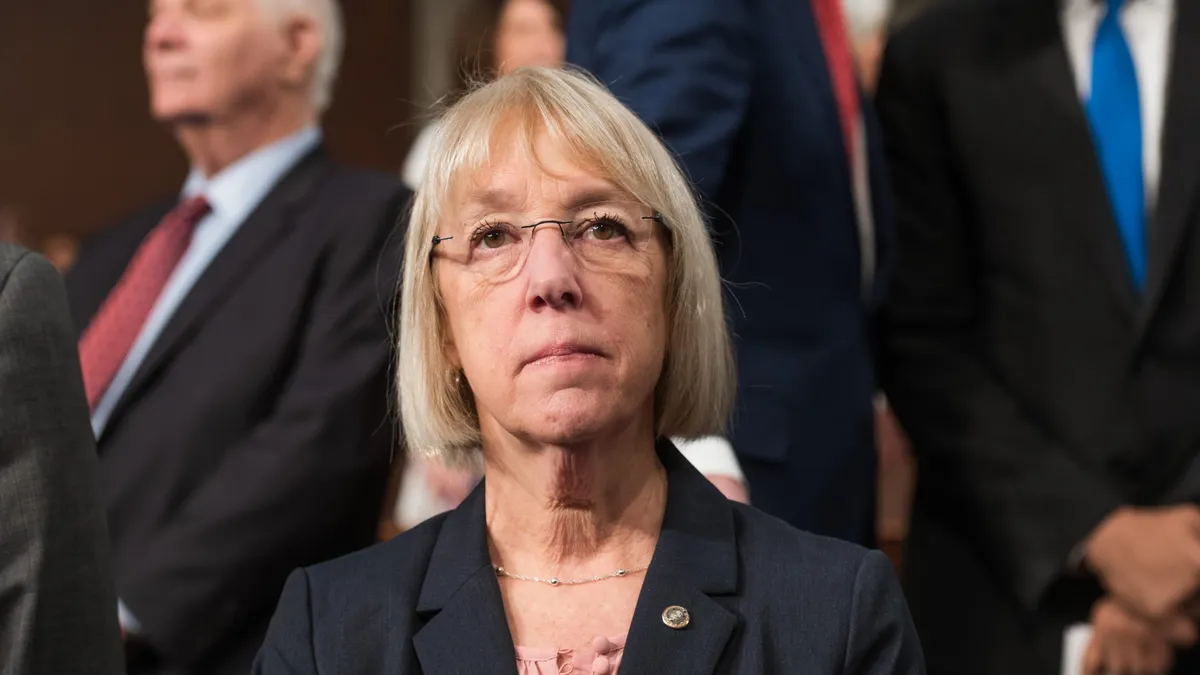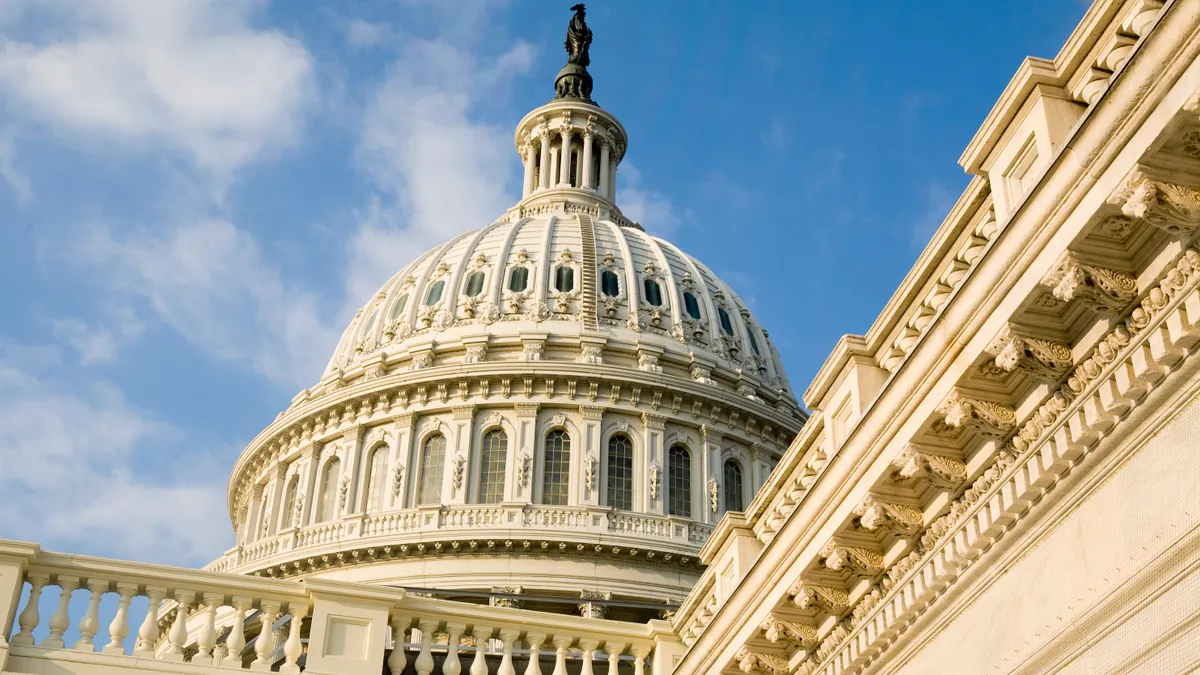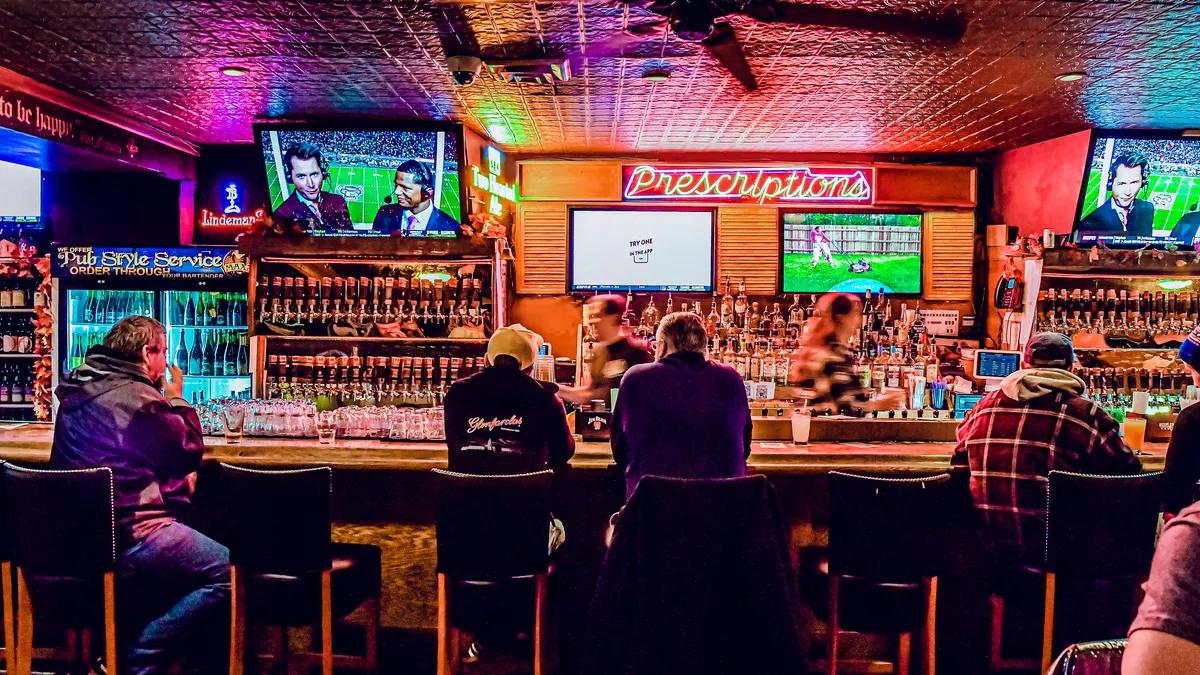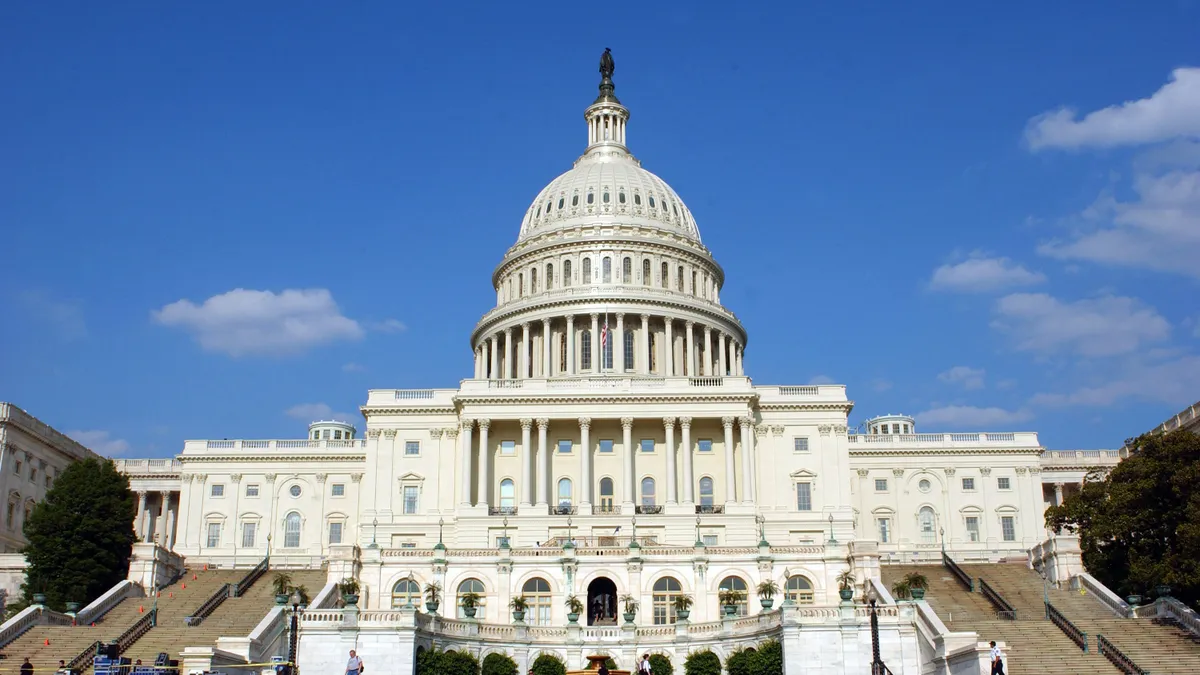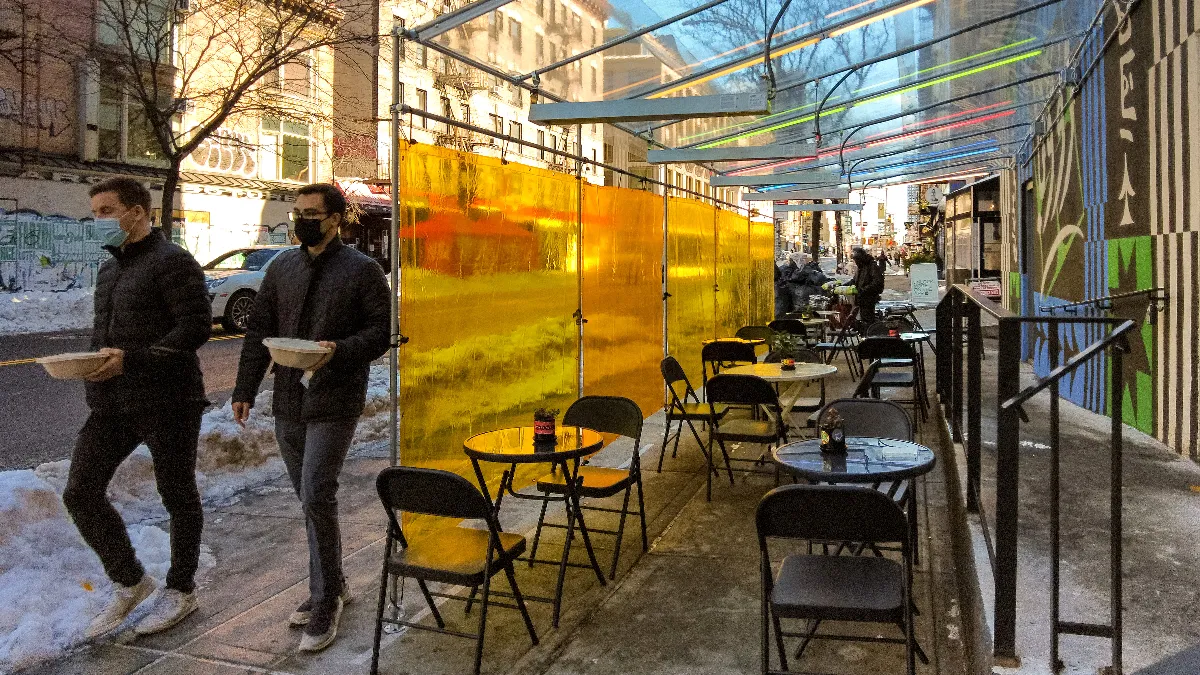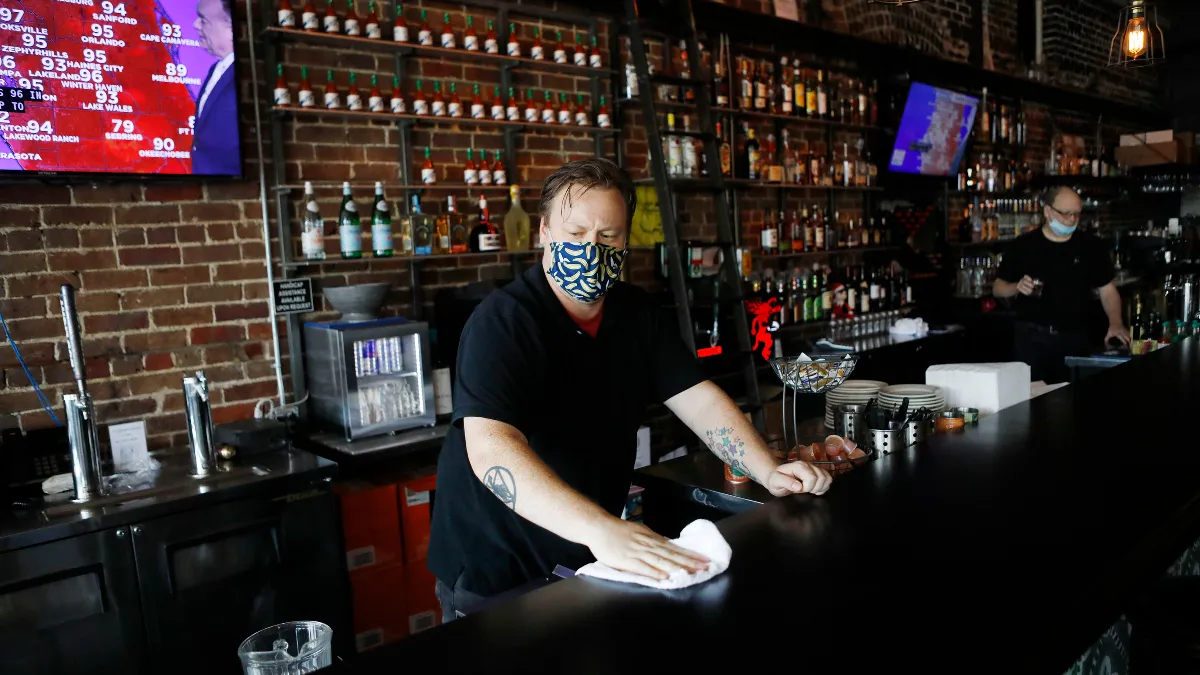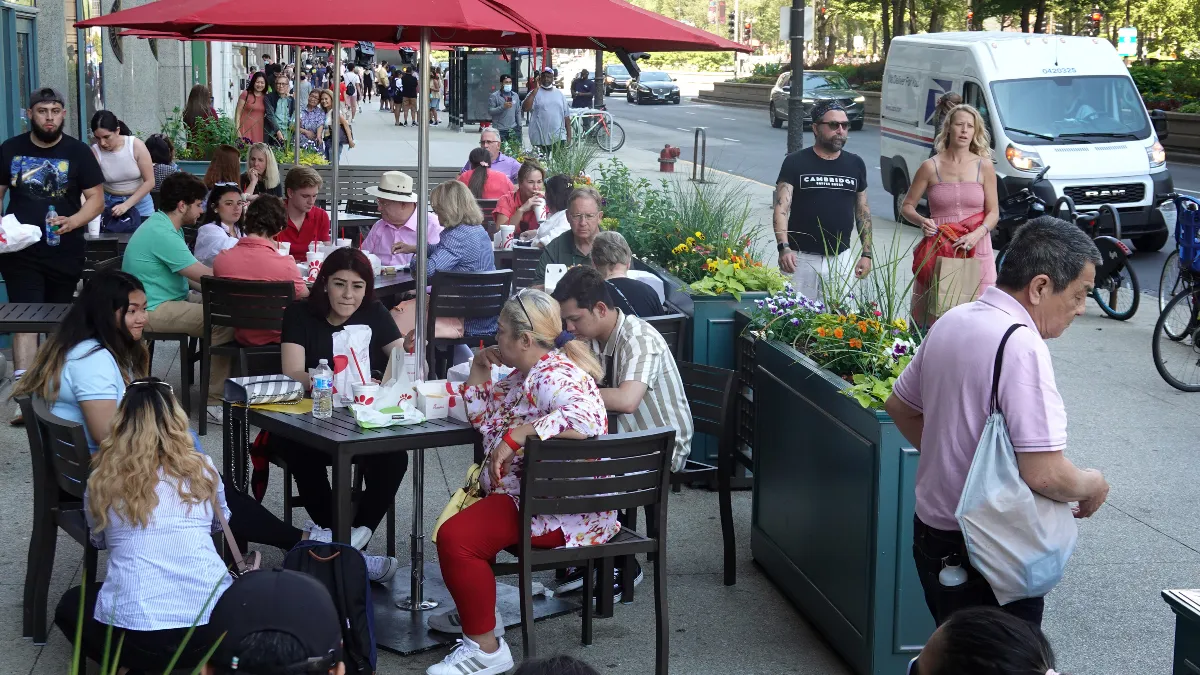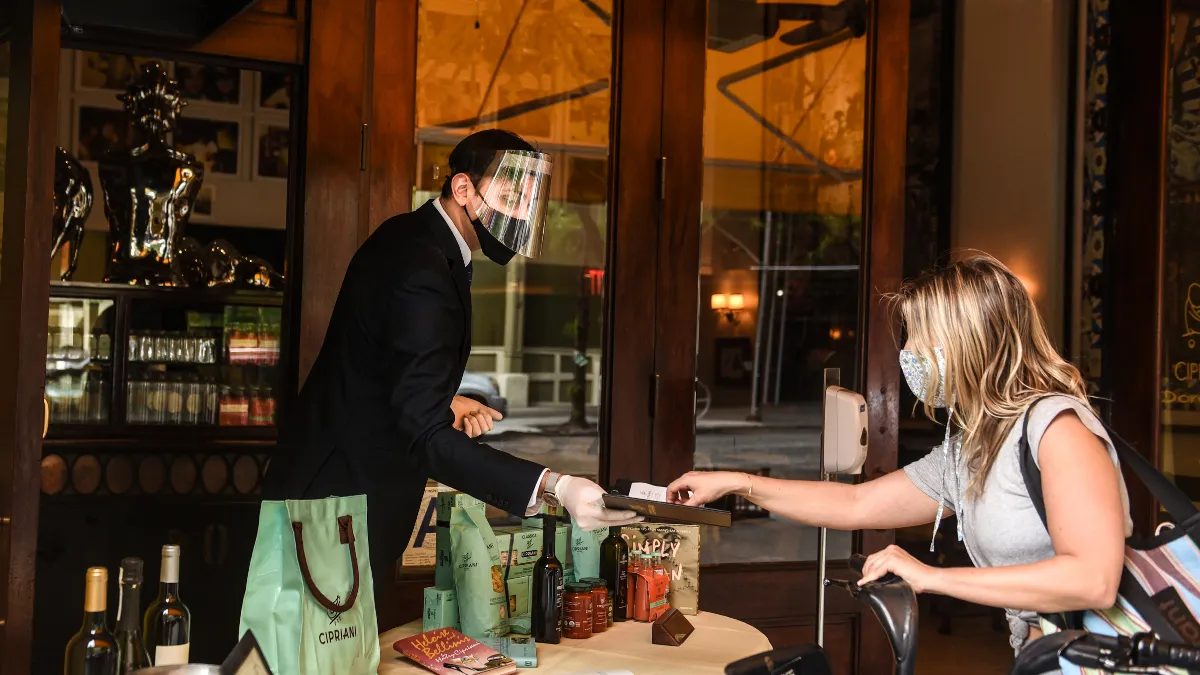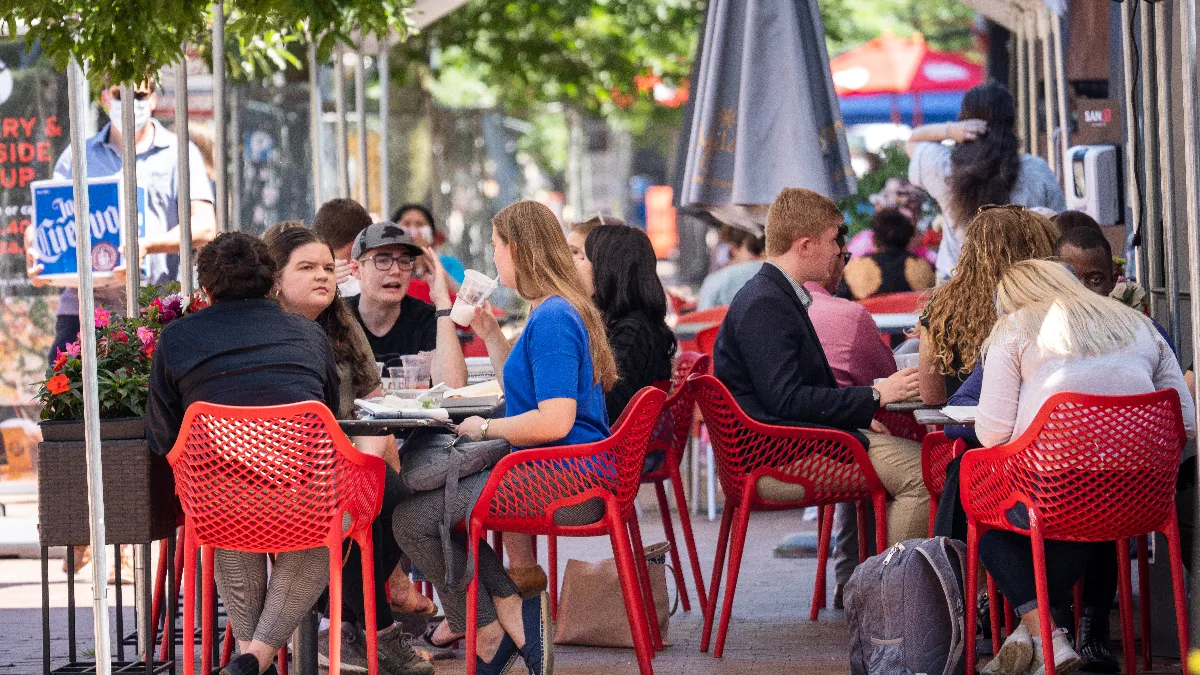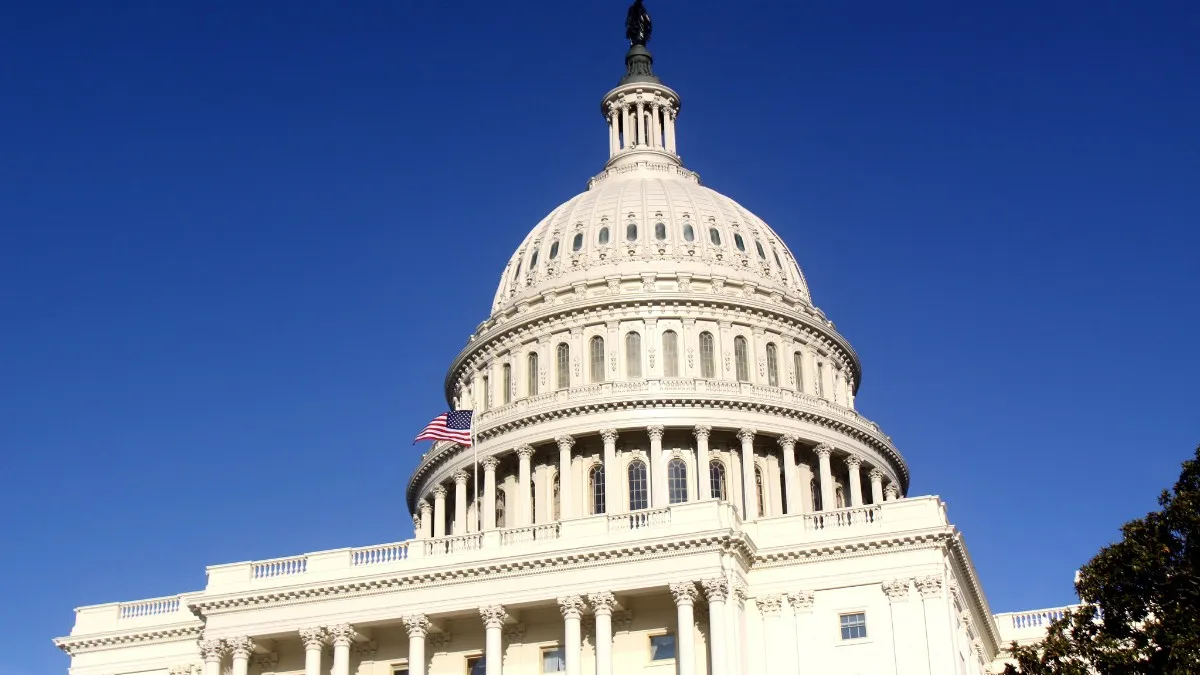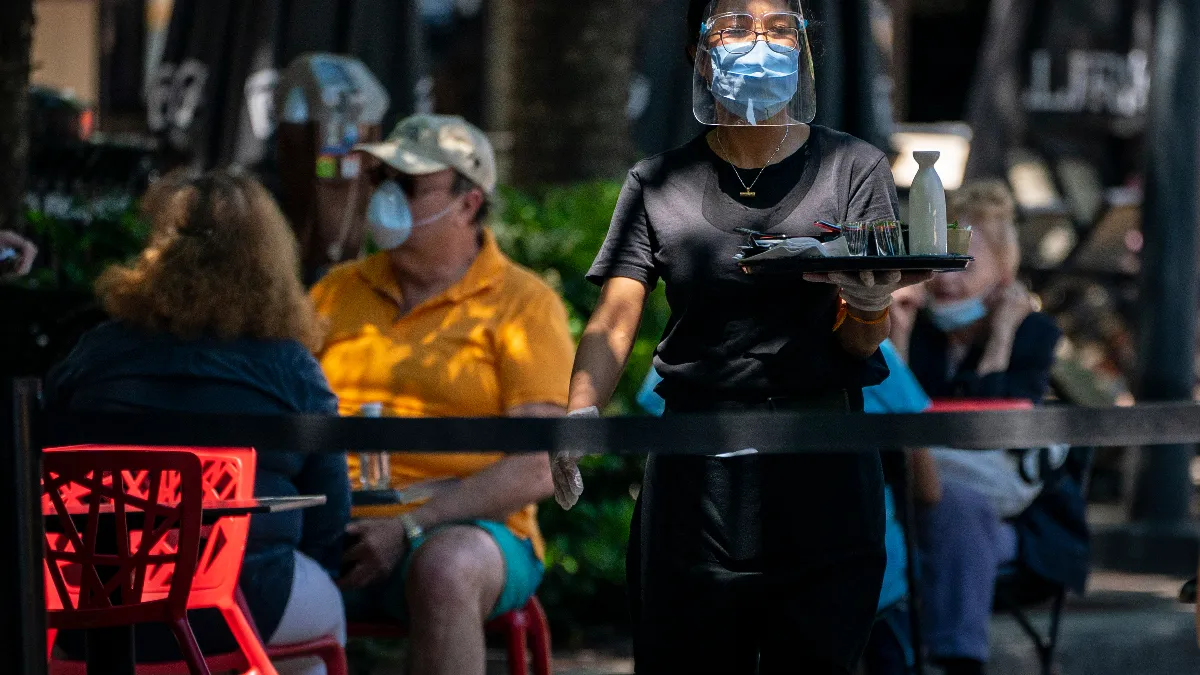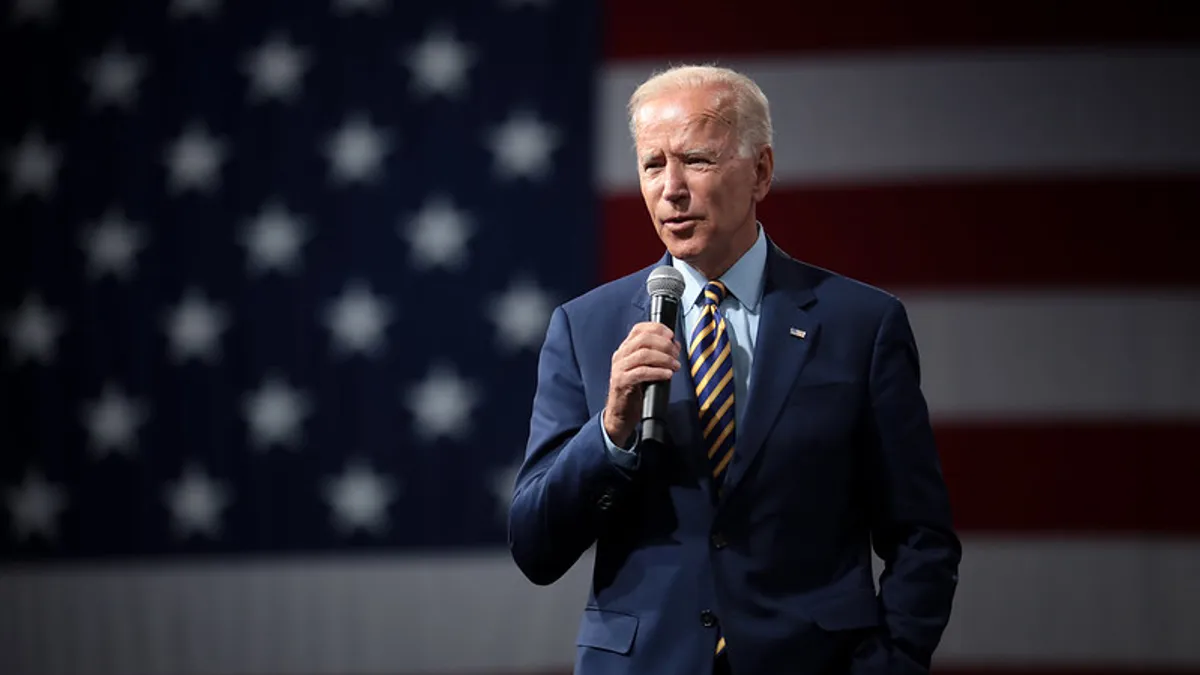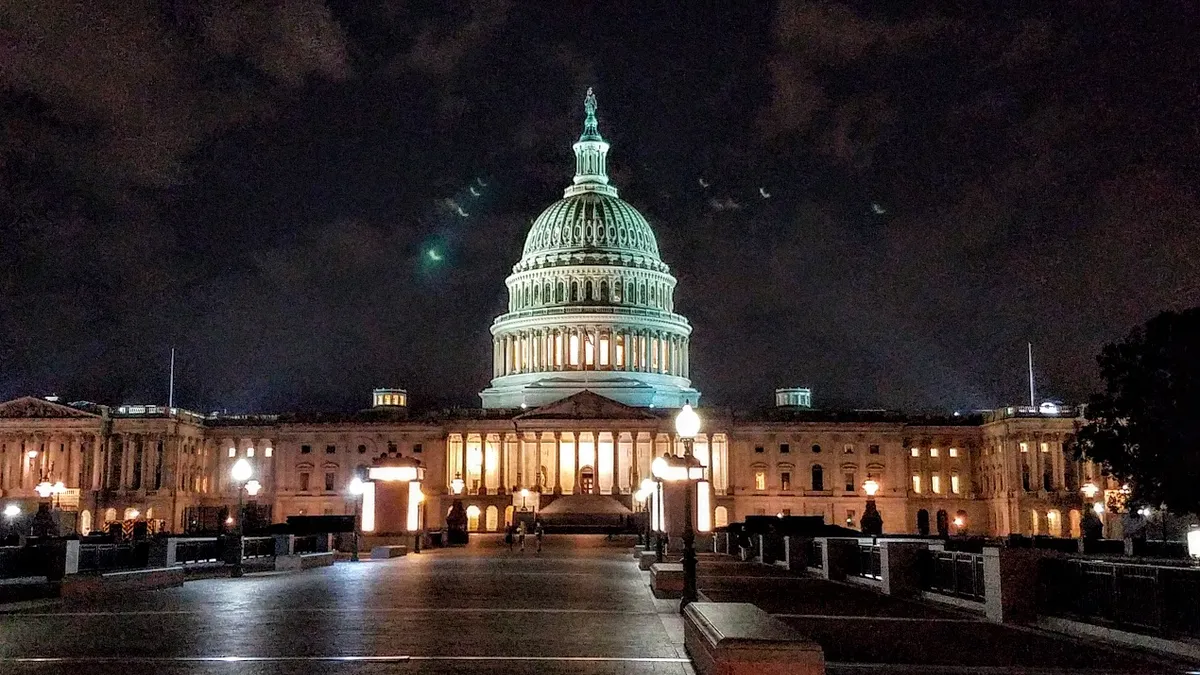Dive Brief:
- Congressman Blaine Luetkemeyer (R-MO) introduced the Entrepreneurs Need Timely Replenishment for Eating Establishments (Entrée) Act on Tuesday that would inject $60 billion in additional funds to the Restaurant Revitalization Fund. The funds would come from rescinding money from unspent Economic Injury Disaster Loans (EIDLs) and other state and local funds within President Joe Biden's American Rescue Plan.
- The proposed legislation would also eliminate preferential treatment for priority groups and require all applications be received, reviewed, processed and disbursed on a first come, first served basis.
- The Entree Act proposal comes a week after the RRF portal was officially disabled while the industry waits to see if Congress will refill the fund. It also follows the National Restaurant Association's request that the Small Business Administration reprogram federal dollars to pay the nearly 3,000 RRF recipients who had their grant approvals revoked by the agency after judges issued injunctions on their disbursements.
Dive Insight:
The NRA praised Luetkemeyer's proposal as evidence of bipartisan support for extended federal relief for the restaurant industry — which the association argues is still desperately needed even as diner demand surges and restaurant restrictions loosen across the country.
"From the outside looking in, the industry appears to be recovering, but looks are deceiving. Restaurants that have been closed or operating under often severe capacity restrictions have months of debt that they are balancing with increased food and labor costs," Sean Kennedy, NRA's EVP of public affairs, said in an emailed statement. "Many are caught in a vicious cycle of wanting to fully open but lacking the resources they need to meet demand."
Nearly 200,000 RRF applications are still pending. Applicants who did not receive money before the fund closed have their applications held within the fund's platform so the SBA can process them in the order received if Congress infuses more money into RRF.
Kennedy said that even after support through Paycheck Protection Program loans and EIDLs, restaurants are being challenged by supply chain disruption, the labor crisis and inflation that is boosting food costs. Even if the RRF fund is refilled, restaurants will be in a weakened state going forward, he said.
"RRF is the most critical tool for recovery," Kennedy said. "Policymakers understood the challenges when we were shuttered, but they need to know ... the reopening of a restaurant by no means indicates that the future of that restaurant is secure."


